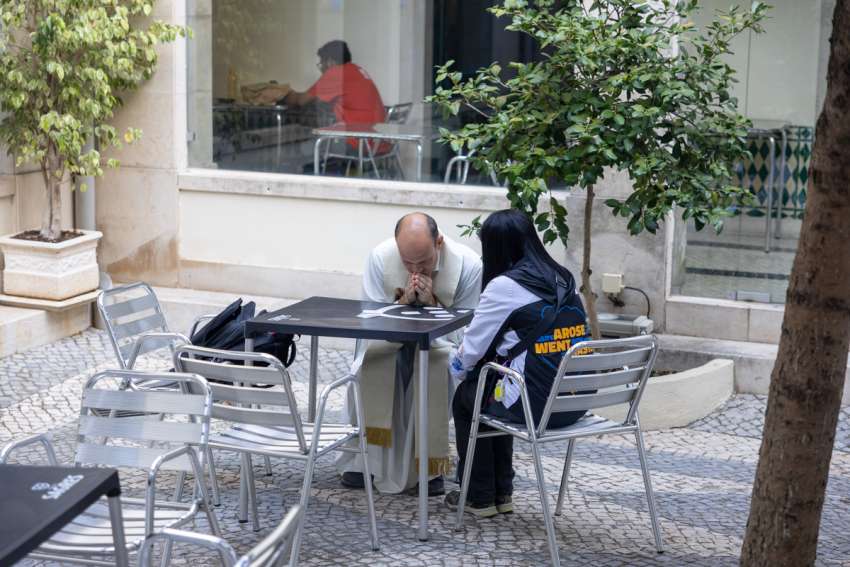Maybe we’d like to complain that Holy Mother Church didn’t feed us, but as adults, we shouldn’t need to be spoon-fed. We can feed ourselves. We need to get our questions and doubts answered, and not just drift with them. We have an obligation as thinking human beings and people of faith to do as much.
As a child, I never understood what the heck the Catholic faith was about. It seemed so random. Seven sacraments. Okay. Why sacraments? Why seven? What was this slightly boring, repetitive ritual we performed every Sunday called “Mass”?
I loved my Golden Children’s Bible with all those cool desert stories, but mostly, I wondered why we needed this pivotal figure of the priest. Nothing seemed to happen without him. The modern society I grew up in valued extreme egalitarianism. The priesthood was out of place. It seemed to me the priesthood was pretending to some kind of nonexistent power and authority, was overdoing it with clericalism or was nothing special because the priest was exactly like laypeople, except in a Roman collar.
As I have mentioned many times in this column, it was Theology of the Body that made me understand all of the Catholic Faith, and in a particular way, the priesthood. How? Through grounding me in the concrete physical reality of the whole kit and caboodle, showing me how it was all connected, and through Theology of the Body, I became a huge fan of the priesthood.
Who gets to tell us how to worship God? Only God Himself. The Catholic faith is God’s system. We all know what systems are. Computer networks are electronic/digital systems. “Systems analyst” is a profession. The human body comprises 11 systems: skeletal, muscular, nervous, digestive, etc. A car is a mechanical system. We talk of systemic problems in society. Trees have root systems, and on and on.
Why do I need to confess my sins to a priest? Well, why do I need a priest for anything? The priesthood is part of God’s perfect system. Without reducing the priest to a functionary — God forbid — he is an essential piece of God’s “delivery system.” The priest is an icon of Christ Himself who shows up at all the most important, meaningful and poignant times in our lives, and through his ordained and consecrated hands, makes the intangible tangible: forgiveness, grace, healing and the Body and Blood of Jesus.
Still chafing against the concept of the priesthood being necessary for your spiritual life? Join Martin Luther who dismantled the entire sacramental system. He said: “There is no such thing as the visible priesthood,” and “We are each our own priest.” Yikes!
Priests’ primary duty is to pray for the Church, that is, us. That’s why they pray the Divine Office every day of their lives. This mandate of prayer is first and foremost to offer sacrifice. Old dictionaries attest to this (even regarding non-Christian priests). Our priests are priests of Jesus Christ the High Priest, and therefore offer the Holy Sacrifice of the Mass. Modern dictionaries define priests as “presiders” which is, well, ridiculous. A German Shepherd can preside.
Priests are soul pastors, the pastors of souls. They are responsible and accountable to God for their flocks. It’s not about affability, a charming personality or good administration. I don’t think St. Jean Vianney, the Curé of Ars and patron saint of priests, excelled at any of these. He simply cared about people’s eternal salvation — sometimes more than they did — and they knew it. That’s the highest form of love: to do what it takes to make people eternally happy.
Why do I need to confess my sins to a priest? Because Jesus (to whom we may want to confess directly) said so. John 20:23. Of course we can talk to Jesus directly any time we want, and we should; but you want absolution? Priest.
(Sr. Helena Raphael Burns, fsp, is a Daughter of St. Paul. She holds a Masters in Media Literacy Education and studied screenwriting at UCLA. HellBurns.com Twitter: @srhelenaburns #medianuns)


